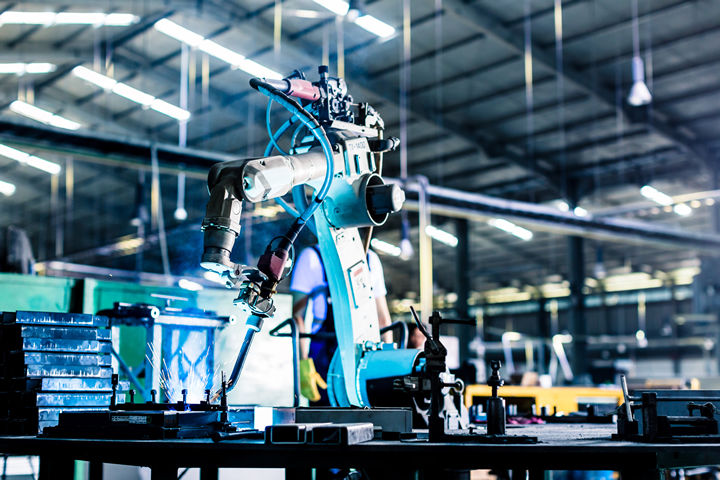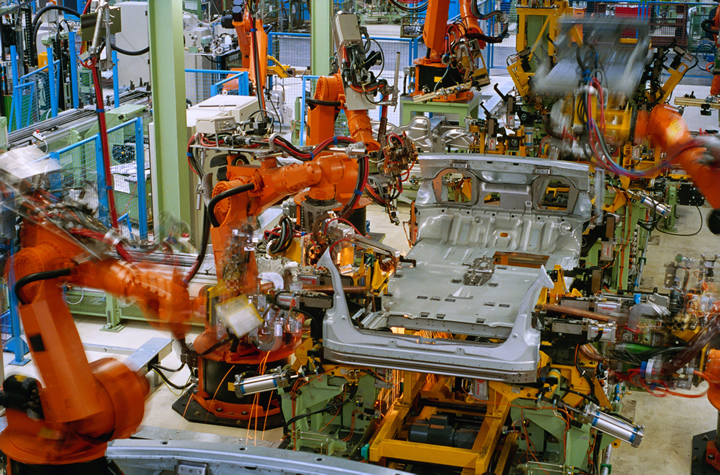Penn Waste Inc. Minimizes Machine Downtime and Improves Efficiency
Penn Waste realized that it needed an advanced wireless solution combined with smart sensors that would deliver accurate, reliable and continuous real-time data for predictive maintenance.
Shaping the Future-Proof Warehouse through Smart Connectivity
Future-proofing warehouse operations will require smart connectivity and specifically scalable, fluid network capacity and a new way of thinking about the invisible network that keeps the robots rolling in the warehouse of tomorrow.
Combining the Best of Both Worlds: Laying the Hybrid Network Foundation for a Smart Factory
Harnessing the full potential of these next-generation solutions demands a robust communication network capable of transporting vast amounts of data from the factory floor to the data center's IT infrastructure.
What is "Platform as a Service" and How Does it Improve Efficiencies in IIoT Ecosystems?
With each new IIoT device brought to market, manufacturers spent untold amounts of time and money making it live up to its potential. Time and again, they were building and rebuilding the same technology to enable data-based decision making, miles away from the device itself
Breaking down Walls to Build e-Factories
Thomas Burke, Global Strategic Advisor at CC-Link Partner Association (CLPA), looks at how industrial automation vendors, machine builders, and end users can futureproof robotic systems with value-adding network technologies.
Why smart interconnection is essential for building the factories of the future
Today, the super-high bandwidth and low latency of 5G have tremendous potential to transform all industries, especially manufacturing. They need intelligent networks to ensure manufacturers get the most from their 5G campuses.
Serving IoT Needs with Cassia Networks and Soracom
One factor that can complicate an IoT application is the crowding that may occur when many connected devices occupy the same area. To help corral all of these signals, many organizations opt to deploy Bluetooth gateways to help connect their IoT devices to the cloud.
Increasing Rural Broadband Can Help Rural Manufacturers Compete
Rural manufacturing's comparative decline is multifaceted, but the solution may not be. One of the most impactful distinctions between today's most and least competitive manufacturers is access to reliable, high-speed internet.
Interwire 2021 Trade Exposition - Industry 4.0 in Wire Manufacturing
Industry 4.0 is truly the future of manufacturing. Automation, robotics, machine learning, and data analytics are just a few examples of how the fourth industrial revolution affects the way wire and cable is made and how well companies compete on the world stage.
Benefits of VFD Cables Over THHN
Cables with the proper shielding, i.e. foil plus braided shield or semi-conductive fleece with foil and a braid shield, prevent the VFD system from radiating electrical noise that can interfere with the surrounding networking, wireless communication, and industrial devices.
Increase Security and Control Costs During Network Upgrades
While COVID-19 may have many legacies, one of them will definitely be an explosion in the amount of network capacity required. Most enterprises are experiencing the need for increased network capacity.
What's the Difference Between a Servo Cable and Motor Cable?
Electrical engineers often work with motor cables and servo cables, which both supply motors with electrical energy and have a nominal voltage of 600/1,000V. But what exactly are the differences between the two cables?
Omron Helps Life Sciences Company Upgrade Prototype with Cutting-edge Technology and Cut Costs by 30% With Solution Using NX-I/O
Omron gave preference to EtherCAT over DeviceNet because the latter is a slower CAN-based protocol designed for sensors and it uses screw-type connections that can be difficult to install and maintain.
Taking an Independent Path: Strategies for Low Risk Sourcing of Components in a Constrained Market
Industrial control equipment industry looks to independent distributors to address chronic shortages in the availability of electronic components
Addressing Remote Locations and Security with SD-WAN
Think of AR in an IIoT manufacturing context: now technicians with AR can remotely monitor, change and maintain systems without putting the operator in danger; however, AR requires a massive amount of network resources.
Records 1 to 15 of 19
Featured Product

MOTION CONTROLLERS FOR MINIATURE DRIVES AND MICRODRIVES
FAULHABER has added another extremely compact Motion Controller without housing to its product range. The new Motion Controller is ideal for integration in equipment manufacturing and medical technology applications. With 36 V and 3 A (peak current 9 A), it covers the power range up to approx. 100 W and is suitable for DC-motors with encoder, brushless drives or linear motors.















